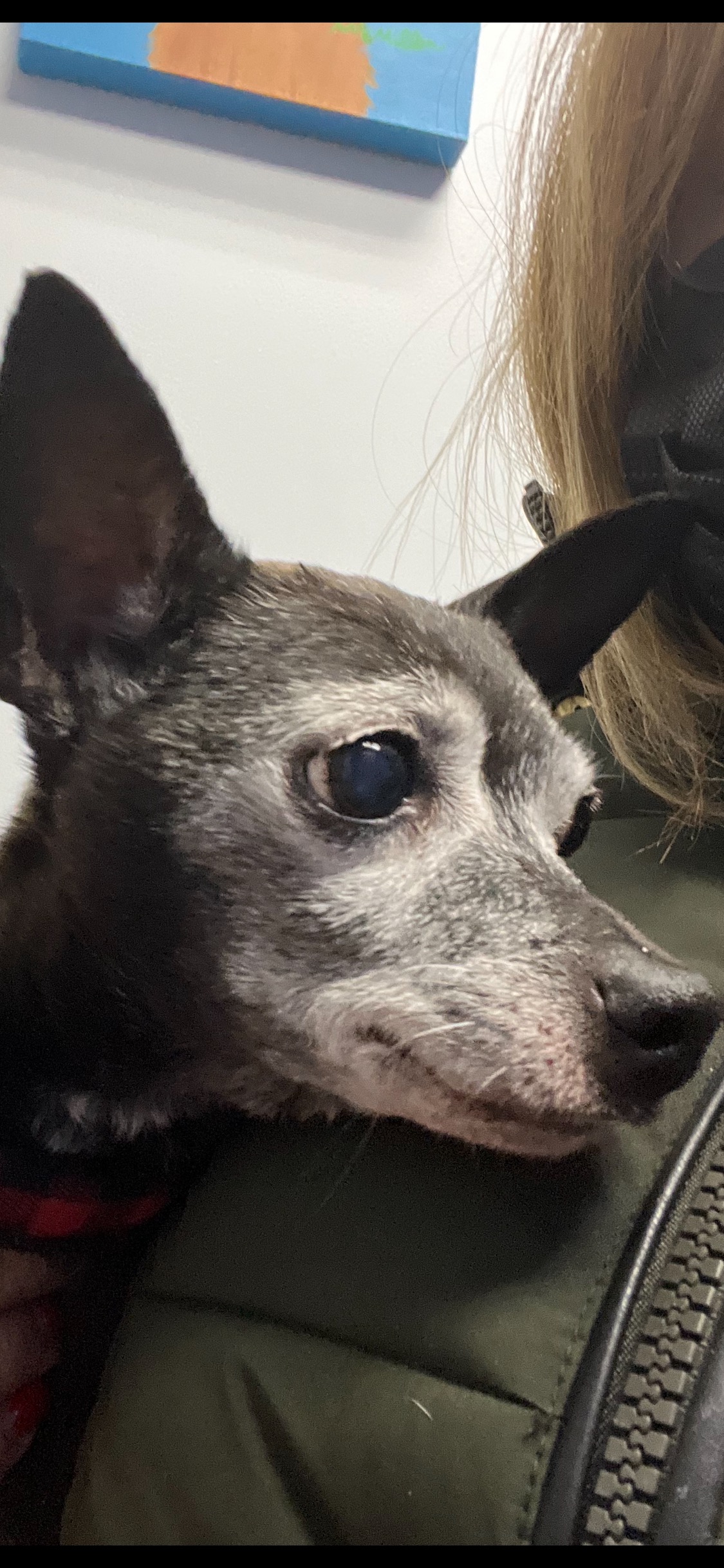This was written as a letter to Dr. Neimeyer. We decided to print it as an AfterTalk Pandemic Weekly because many people adopted pets or lost beloved pets during the Pandemic, and this might resonate for them–the editors.
Dear Dr. Neimeyer,
I am not writing to ask a question, but rather to share my grief. I did not see it coming. Yesterday, my family and I had to put down our furry family member of 15 years! Her name was Roxie. She was a 17-year-old Chihuahua. She had begun to decline since early fall. She had lost quite a bit of weight and her behavior began to change too. I took her to the vet yesterday after work thinking she was going to be sent home with some medication and all would be well.
This was not the case as her liver and spleen had been compromised with cancer. She was suffering and we did not even know it, according to her vet.
However, as much as I want to share her life with others, I am not writing about that but about the grief I am now experiencing. I did not see this coming. I never knew how much it was going to hurt. People who read this and have no pets or have never had a pet may be asking, “why are you hurting; it was just a dog!” Yes, she was a dog, but she was more to us than just a dog.
Dr. Ken Doka has written and coined the phrase “disenfranchised grief.” He defines this term as “a loss that is not or cannot be socially sanctioned, openly acknowledged, or publicly mourned” (TAPS webinar, January 2022). This means there will be people who will not completely understand why this type of loss would hurt so much, but it does. My mind was preparing me for this time as her health begun to decline. My heart, however, did not see it coming.
I am a bereavement coordinator; I am supposed to know how to deal with this. Yet, this experience has caught my heart by surprise! I am not trying to be selfish about this as I know my whole family is hurting for her loss too. So why does it hurt?
I believe it was Tadeschi and Calhoun (1995, 2007) who state that there are 3 elements essential in all bereavement and I quote:
1. A relationship or attachment with some person or thing (a pet in this case) that is valued.
2. The loss, which as ended, terminated, or separated, of that relationship and
3. An individual who is deprived of the valued person or thing by the loss.
All these elements apply to the loss of our pet Roxie. Therefore, it hurts.
Taking from my own recommendations as a bereavement coordinator, I ask myself, how can I move forward yet continue to grieve. My return home from the vet last night was not easy. The house was too quiet and dark. I went onto a social media platform and put picture of Roxie
out there as I shared the following with my family and friends: “I want to share with all my friends the grief my family and I are experiencing over the loss of our 4-legged family member, Roxie. She went to doggie heaven after living 17 great earthly years. We pray St. Francis will meet her with open arms. We will love you forever; Rest in peace.”
I received an outpouring of support from people I never thought would respond. This was comforting. I am not proposing to take anyone’s grief away, but please reach out for comfort and support when you have experienced the death of your pet. And when you have an opportunity, please do not hesitate to reach out and comfort someone who has experienced this type of loss, as this too is painful. Thank you for listening!
Eva Bustamante, MS, CT, CG-C from Chicago, IL
CLICK HERE TO JOIN AFTERTALK
Free and Non-denominational


Dear Eva, I am so sorry to learn of the loss of your beloved Roxie. As a grief counselor who’s supported bereaved animal lovers for many years, I know how much this hurts. It saddens me that still, in this day and age, the grief that accompanies pet loss comes as such a shock ~ especially to a thanatologist such as yourself. Thank you for telling your story, and thanks to AfterTalk for sharing it with all of us here. Wishing you comfort, peace and healing ~ Marty Tousley